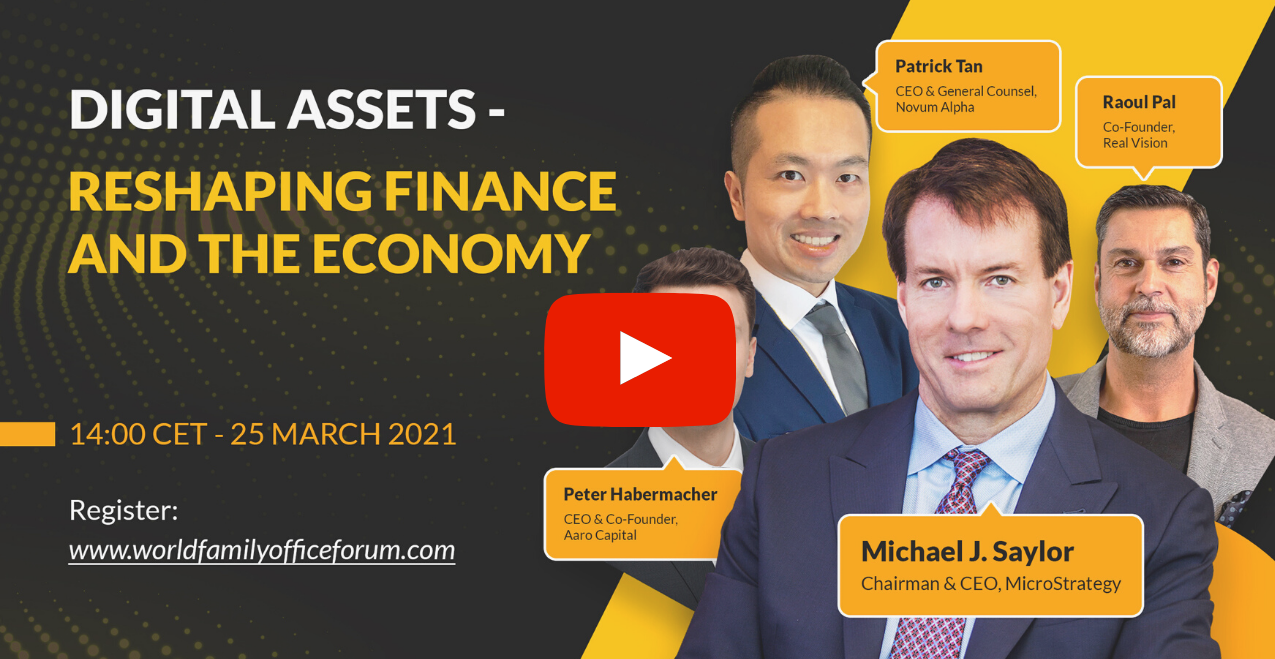Novum Alpha - Daily Analysis 16 June 2021 (10-Minute Read)
Watching paint dry appears to be what market participants are doing as the U.S. Federal Reserve heads into a key policy meeting.
|
A wonderful Wednesday to you as markets wind into
In brief (TL:DR)
|
In today's issue...
|
Market OverviewWatching paint dry appears to be what market participants are doing as the U.S. Federal Reserve heads into a key policy meeting.
Investors have taken to the sidelines until greater clarity emerges from the Fed as to what to make of the latest bout of sharply higher inflation.
Expectations are high that the Fed will maintain the status quo, primarily because of the relative calm in bond markets (U.S. Treasuries barely budged in the wake of sharply higher inflation data) and equities rallying to fresh all-time-highs suggest that investors are buying into the Fed's "New Monetary Policy."
The Fed's "New Monetary Policy" accepts bouts of higher inflation to make up for previously lower periods.
Expectations are high then that the Fed will stick to its plan to increase interest rates only closer to 2023 - and for investors that's a "later me" problem, which should continue to buoy markets in the interim.
Over in Asia markets were a mixed bag with Tokyo's Nikkei 225 (-0.25%) and Hong Kong's Hang Seng (-0.13%) slightly lower in the morning trading session, while and Sydney’s ASX 200 (+0.27%) and Seoul's Kospi Index (+0.61%), were up as investors waited for the results of the Fed policy decision.
|
Did you miss us at the World Family Office Forum? Watch it here... |
 |
 |
1. Markets No Longer Feel Fear
“There is nothing to fear but fear itself.”
– U.S. President Franklin D. Roosevelt
Considering that much of the world is still in the throes of a global pandemic, investors are far more calm and their expectations far more sanguine than one would expect.
Even after inflation fears roiled markets in the first few months of this year, the Vix, a measure of anticipated volatility in Wall Street’s S&P 500 dwindled to a pandemic-era low of 15.7 points last Friday, having surged to 80 during the early stages of the crisis.
Some suggest that the calm partly reflects the wait-and-see approach of the U.S. Federal Reserve, which appears prepared to sit out a spell of unusually high inflation, without removing monetary support, the absence of which would almost certainly spell trouble for markets.
But are investors being overly complacent?
Global stocks have rallied to record highs as Europe and the United States emerge from the pandemic and growth looks robust, but fresh gains in equities have been flat in recent weeks with some investors suggesting that all the good news has already been baked in.
Headline consumer price inflation in the U.S. hit 5% in the 12-months to May, the fastest pace in 13 years, while supply chain bottlenecks and shipping rate rises are threatening to send prices even higher.
Central banks typically raise interest rates to combat inflation, but the Fed has maintained that it will stay on target and looks set to keep to its timetable of reviewing rates only in 2023, believing that current bouts of inflation are temporary - the markets seem to agree.
And low volatility, in and of itself is not an immediate signal to dump stocks, with historical data since 1991 suggesting that buying the S&P 500 when the Vix was between 15 and 16, would have led to a total return of 14.6% in the subsequent 12 months.
Ironically, the bigger risk for stocks could be good results in the coming quarters and for the whole of 2021.
Because analyst expectations are high that earnings of S&P 500 firms will rise an average 35% this year, according to data from FactSet, much of those earnings expectations can already be expected to be priced into stock prices.
In the early months of 2021, record earnings by U.S. tech giants actually saw their prices fall, albeit because of inflation concerns, but the same thing could happen again as expectations meet reality, and less so because of concerns over price increases.
When corporate earnings are ultimately reported, investors may take some of that money off the table, especially if earnings exceed expectations.
It’s when earnings fall short that investors may stay invested in stocks because central banks may see missed revenue forecasts as signs that their intervention is still required in the markets.
The 400-pound gorilla in the markets continues to be the U.S. Federal Reserve and withdrawing support too early can only result in markets getting beat up, with investors along with it.
Sometimes bad news is actually good, especially if you’re invested.
|
Did you miss us at the World Family Office Forum? Watch it here... |
 |
 |
2. The 60/40 is dead?
If you don’t know what else to do with your portfolio allocation, experts recommend you stick with the basic 60/40 stock and bond mix of investments.
But with bond yields plummeting since the aftermath of the 2008 Financial Crisis, retail pension savers are ditching the portfolio management thesis that has anchored retirement plans for over half a century and made investment bankers of us all.
From meme stocks to cryptocurrencies, the virtually negligible income paid out by bonds and the fear of missing out on big gains is fueling even pension savers towards more speculative segments of the market.
For millions of pension savers, especially do-it-yourself portfolios like the 401(k) in the U.S., the last straw was the pandemic breakdown of the underlying principle that bonds should cushion losses when stocks fall.
In the two decades since the dotcom bubble burst, bonds typically shared a negative correlation with equities, but at the height of the pandemic panic last March, both were sold off at the same time, with investors hoarding cash and for the past three months, the correlation between stocks and bonds could not have been stronger.
Even though the 60/40 strategy has yielded 7% this year alone, pension savers are no longer sold on such high allocations to fixed income.
With retirements getting longer and yields getting lower, the shift to go long on risk may ultimately prove durable.
But the stakes are high, especially for pensioners heading into their sunset years.
Low bond yields and expensive equity valuations have historically signaled lower returns in future years, and for those heading into retirement, the first five years are crucial to preserving capital – a sudden crash could see retirees returning to the workforce.
|
 |
 |
3. Bitcoin Bubble?
Poll any group of fund managers last year and the overwhelming majority would have declared that GameStop (-3.02%) and AMC Entertainment (+3.58%) were decrepit companies with limited prospects and no room for upside – sell where possible – and they would have been dead wrong.
And even after last month’s 40% plunge for Bitcoin, there are more than a few fund managers who believe that Bitcoin continues to be in a bubble, with 80% of professional money managers polled by Bank of America (+0.07%) calling the market a bubble, up from 75% in May.
The Bank of America poll, which captures the views of 207 investors with over US$645 billion in assets, noted that “long Bitcoin” was the second-most crowded trade after commodities, which are already cooling.
Bubble fears for Bitcoin and other cryptocurrencies are nothing new, given their extreme volatility and regulatory uncertainty.
And while prices for cryptocurrencies have tumbled, some of Wall Street’s biggest names are embracing the nascent asset class.
Goldman Sachs (-0.43%) last week announced that it plans to roll out Ethereum options to clients and Cowen Inc. (+4.74%) plans to offer “institutional-grade” custody services for cryptocurrencies.
Billionaire hedge fund manager Paul Tudor Jones, an early supporter of Bitcoin, has continued to reiterate his bullish view that Bitcoin is a good hedge against inflation.
And Tesla (-2.97%) CEO Elon Musk has marked a change of heart and declared that the electric vehicle maker would be open to accepting Bitcoin as payment again if 50% of its mining activities were clean.
But surveys, especially among Wall Street’s moneyed elite allocators may provide little guidance as to what they truly believe.
In the run-up to the dotcom bubble and the mortgage crisis, Wall Streeters were openly bullish on the prospects for tech stocks which had no intrinsic value, and the real estate market that was about to implode.
That Wall Street is suggesting cryptocurrencies are in a bubble should be telling – their biggest beef may be that just like the meme stock saga, they weren’t the ones who inflated it.
|
What can Digital Assets do for you?While markets are expected to continue to be volatile, Novum Alpha's quantitative digital asset trading strategies have done well and proved resilient.
Using our proprietary deep learning and machine learning tools that actively filter out signal noise, our market agnostic approach provides one of the most sensible ways to participate in the nascent digital asset sector.
If this is something of interest to you, or if you'd like to know how digital assets can fundamentally improve your portfolio, please feel free to reach out to me by clicking here.
|
 |
|
Looking to trade cryptocurrency yourself? Then why not try CryptoHero, a member of the Novum Group.
Enjoy some of the high performing algorithms that Novum Alpha uses, absolutely free!
Because you can't be up 24 hours trading cryptocurrency markets, CryptoHero's free bots do the trading for you.
Simple and intuitive for crypto beginners to set up and run, CryptoHero is currently available on the Web and iOS with an Android version ready in 2021.
|
|
Jun 16, 2021